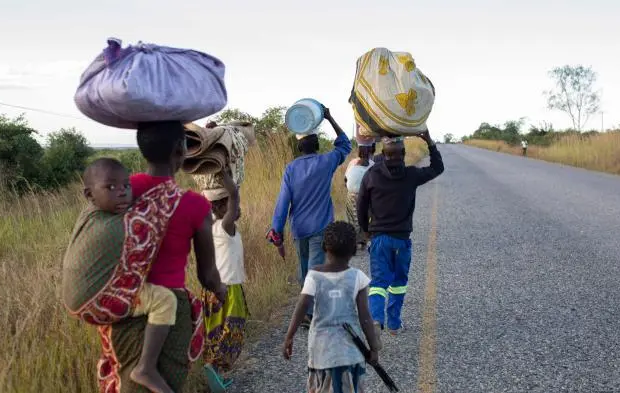A surge in armed attacks across northern Mozambique in July has forced tens of thousands to flee their homes, intensifying a deepening humanitarian crisis and overwhelming already strained aid efforts.
According to the UN Office for the Coordination of Humanitarian Affairs (OCHA), more than 46,000 people were displaced in just one week, with the districts of Chiúre, Ancuabe, and Muidumbe bearing the brunt. Chiúre alone saw over 42,000 people uprooted more than half of them children as communities fled renewed violence. These mass displacements compound an already dire situation in the country, where ongoing insecurity, climate shocks, disease outbreaks, and underfunded aid responses continue to converge.
Since January, over 95,000 people have been forced to flee violence in Cabo Delgado province, with many experiencing repeated displacement. The latest attacks have driven families into overcrowded shelters, particularly in Chiúre Sede, where humanitarian partners report a high number of unaccompanied or separated children. Access to food, shelter, clean water, and basic non-food items remains critically limited.
OCHA warns that many displaced people lack civil documentation, which can severely restrict their ability to access essential services or rebuild their lives. In Ancuabe, displacement has surged rapidly, with nearly 2,000 people most of them children fleeing their homes in recent days. Similar patterns are emerging in Muidumbe, where armed groups reportedly burned homes and fired on civilians, prompting hundreds of families to flee into displacement sites with limited humanitarian access.
Despite the escalating need, Mozambique’s humanitarian response is dangerously underfunded. As of July, only 19 percent of the 2025 Humanitarian Response Plan has been met. Of the $352 million required to meet urgent needs, only $66 million has been received. This shortfall has forced aid agencies to cut their original targets by more than 70 percent, now aiming to reach just 317,000 people out of the 1.1 million originally planned.
Aid organizations stress that without immediate and sustained support, the situation could deteriorate further. They are urging the international community to prioritize funding, ensure civilian protection, and facilitate unhindered humanitarian access. As violence and instability continue to displace vulnerable populations, the need for global attention and urgent action has never been more critical.
